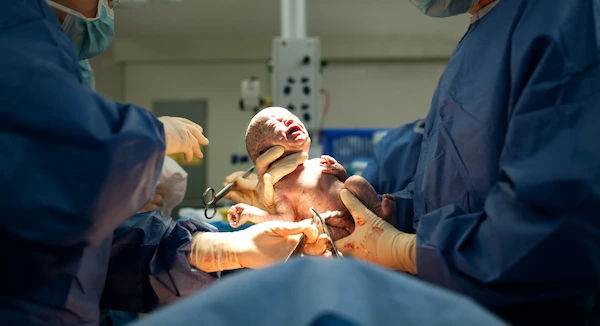Your Complete Guide to Women's Health and Fitness: Thrive at Every Age
Know about women's health and fitness, how a tailored approach helps, pillars of physical fitness, and nutrition for an active woman. Learn about navigating life stages and more

Written by Dr. D Bhanu Prakash
Reviewed by Dr. Mohammed Kamran MBBS, FIDM
Last updated on 30th Jan, 2026

Introduction
Navigating the world of women's health and fitness can feel overwhelming. With endless information on diets, workout trends, and wellness advice, it's hard to know where to start. But what if the goal wasn't just about losing weight or fitting into a certain size? What if it were about building a strong, resilient, and vibrant body that supports you through every chapter of your life? This guide shifts the focus from short-term fixes to lifelong well-being. We believe that fitness is a personal journey that encompasses not just physical strength, but also mental clarity, emotional balance, and nutritional wisdom. This article will provide a comprehensive roadmap, breaking down the essential components of a holistic health strategy tailored specifically for women.
Why a Tailored Approach to Women's Fitness is Essential?
A one-size-fits-all approach to health rarely works, and this is especially true for women. Our bodies have distinct physiological and hormonal characteristics that directly influence our fitness responses, nutritional needs, and overall wellness strategies. Recognising these differences is the first step toward creating an effective and empowering health plan.
Consult Top Specialists for Personalised Tips
Understanding the Female Physiology
Women generally have a higher body fat percentage than men, which is essential for hormone production and reproductive health. We also tend to carry weight differently, often accumulating it around the hips and thighs. From a musculoskeletal perspective, women typically have less muscle mass and bone density, making strength training and weight-bearing exercises critically important for preventing osteoporosis later in life. Furthermore, the female pelvis is wider, which can affect alignment and potentially increase the risk of certain knee injuries if not addressed with proper form and strengthening exercises.
Hormonal Fluctuations and Their Impact on Fitness
The menstrual cycle is a prime example of why a tailored approach is necessary. Hormones like estrogen and progesterone fluctuate throughout the month, influencing energy levels, metabolism, and even injury risk. For instance, the follicular phase (just after your period) is often a great time for high-intensity workouts and strength training, as estrogen levels rise, potentially enhancing muscle building. During the luteal phase (the week or so before your period), energy may dip, making moderate exercise like yoga, walking, or swimming more appealing and beneficial. Tracking your cycle can be a powerful tool for syncing your fitness routine with your body's natural rhythms, leading to better results and more consistent motivation.
The Pillars of Physical Fitness for Women
A well-rounded fitness routine is built on three key pillars: strength, cardiovascular health, and flexibility. Neglecting any one of these can lead to imbalances and limit your overall progress.
Strength Training: Why Lifting Weights is Non-Negotiable
For too long, women were steered toward light weights and cardio machines, fearing that lifting heavy would make them "bulky." Science has completely debunked this myth. Strength training is arguably the most beneficial form of exercise for women. It boosts metabolism by increasing muscle mass, which burns more calories at rest than fat. It strengthens bones, reducing the risk of osteoporosis. It also improves functional strength for everyday activities, enhances posture, and boosts confidence.
Debunking the "Bulking Up" Myth
Women have significantly lower levels of testosterone than men, the primary hormone responsible for massive muscle hypertrophy. Therefore, lifting heavy weights will not cause women to look like bodybuilders. Instead, it creates a toned, strong, and defined physique. The focus should be on progressive overload—gradually increasing the weight or resistance to continually challenge your muscles.
Cardiovascular Health: More Than Just Weight Loss
While many associate cardio with weight loss, its benefits run much deeper. Regular cardiovascular exercise, such as brisk walking, running, cycling, or swimming, strengthens your heart and lungs, improves circulation, and reduces the risk of chronic diseases like heart disease, diabetes, and stroke. It's also a powerful mood booster, releasing endorphins that help combat stress, anxiety, and depression. Aim for a mix of steady-state cardio (like a 30-minute jog) and high-intensity interval training (HIIT) for optimal heart health and metabolic conditioning.
The Importance of Flexibility and Mobility
Often the most neglected pillar, flexibility and mobility are crucial for preventing injury, reducing muscle soreness, and maintaining a full range of motion as you age. Practices like yoga and Pilates are excellent for improving flexibility, but even dedicating 10 minutes post-workout to stretching can yield significant benefits. If you experience persistent joint pain or limited mobility that interferes with your daily life, consulting a physiotherapist or a doctor online with Apollo24|7 can help you identify the cause and create a safe stretching plan.
Fueling Your Body: Nutrition for the Active Woman
You can't out-exercise a poor diet. Nutrition provides the foundation for energy, recovery, and overall health. For active women, understanding macronutrients and key micronutrients is essential.
Macronutrients 101: Balancing Carbs, Protein, and Fats
Carbohydrates: They are your body's primary fuel source. Choose complex carbs like whole grains, fruits, and vegetables for sustained energy.
Protein: Critical for muscle repair and growth. Include a source of lean protein (chicken, fish, tofu, lentils, Greek yoghurt) in every meal.
Fats: Healthy fats (avocado, nuts, seeds, olive oil) are vital for hormone production and absorbing fat-soluble vitamins. Don't fear them!
Key Micronutrients for Women's Health (Iron, Calcium, Vitamin D)
Women have specific micronutrient needs. Iron is crucial due to blood loss during menstruation; low levels can lead to fatigue and anaemia. Calcium and Vitamin D are a powerhouse duo for bone health. Since Vitamin D deficiency is common, Apollo24|7 offers convenient home collection for tests like vitamin D or HbA1c, making it easy to check your levels.
The Mind-Body Connection: Mental and Emotional Wellness
True health is incomplete without mental and emotional well-being. Chronic stress can sabotage your fitness goals by elevating cortisol levels, which can promote abdominal fat storage and disrupt sleep.
Stress Management Techniques for a Busy Life
Incorporate stress-reducing practices into your routine. This could be meditation, deep-breathing exercises, spending time in nature, or pursuing a hobby. Even five minutes of mindful breathing can reset your nervous system.
The Role of Sleep in Recovery and Hormone Balance
Sleep is when your body repairs muscle tissue, consolidates memories, and regulates hormones like ghrelin and leptin, which control hunger. Aim for 7-9 hours of quality sleep per night. Poor sleep can derail your fitness progress and negatively impact your mood and cognitive function.
Navigating Different Life Stages
A woman's health needs evolve, and your approach should adapt accordingly.
Fitness in Your 20s and 30s: Building a Strong Foundation
This is the time to build peak bone density and muscle mass. Focus on establishing a consistent routine that includes all three pillars of fitness. This foundation will pay dividends for decades to come.
Health and Fitness Through Perimenopause and Menopause
As estrogen levels decline, the risk of weight gain (particularly around the abdomen) and bone loss increases. Strength training becomes even more critical to preserve muscle and bone. Cardiovascular exercise remains important for heart health. If you're struggling with severe menopausal symptoms, consult a doctor online with Apollo24|7 to discuss management strategies tailored to your needs.
Staying Active in Your 60s and Beyond
The focus shifts to maintaining mobility, balance, and independence. Activities like walking, water aerobics, tai chi, and light strength training are excellent. Prioritise balance exercises to prevent falls.
Building a Sustainable Routine: Tips for Long-Term Success
The best workout and nutrition plan is the one you can stick with. Find activities you enjoy, set realistic goals, and be kind to yourself on days when motivation is low. Consistency over perfection is the key to long-term success in your women's health and fitness journey.
Conclusion
Your journey in women's health and fitness is uniquely yours. It's not about comparing yourself to others but about investing in your long-term well-being. By understanding your body's unique needs, embracing a balanced approach to exercise and nutrition, and prioritising your mental health, you are building a foundation for a stronger, healthier, and more vibrant life. Start with one small change today, whether it's adding a walk to your day, drinking more water, or trying a bodyweight workout. Remember, this is a marathon, not a sprint. Be patient, celebrate your progress, and never underestimate the power of showing up for yourself. You are worth the investment.
Consult Top Specialists
Consult Top Specialists for Personalised Tips

Dr. Anand Ravi
General Physician
2 Years • MBBS
Bengaluru
PRESTIGE SHANTHINIKETAN - SOCIETY CLINIC, Bengaluru

Dr. Kiran K J
General and Laparoscopic Surgeon
18 Years • MBBS, MS, FMAS, DMAS (Fellow & Dip in Min. Access surg.), FALS- Bariatric & Robotic Surgery
Bengaluru
Apollo Hospitals Bannerghatta Road, Bengaluru
(50+ Patients)

Dr. Saket Goel
General Surgeon
27 Years • MBBS, MS (Surg.)
Delhi
Apollo Hospitals Indraprastha, Delhi
(125+ Patients)

Dr. Sunil Kaul
General Surgeon
30 Years • MBBS, MS, FICS, FIMSA, FMAS
Delhi
Apollo Hospitals Indraprastha, Delhi
(25+ Patients)

Dr. S K Pandita
General and Laparoscopic Surgeon
15 Years • MBBS, MS(General Surgery)
Noida
Apollo Hospitals Sector 26, Noida
(75+ Patients)
Consult Top Specialists

Dr. Anand Ravi
General Physician
2 Years • MBBS
Bengaluru
PRESTIGE SHANTHINIKETAN - SOCIETY CLINIC, Bengaluru

Dr. Kiran K J
General and Laparoscopic Surgeon
18 Years • MBBS, MS, FMAS, DMAS (Fellow & Dip in Min. Access surg.), FALS- Bariatric & Robotic Surgery
Bengaluru
Apollo Hospitals Bannerghatta Road, Bengaluru
(50+ Patients)

Dr. Saket Goel
General Surgeon
27 Years • MBBS, MS (Surg.)
Delhi
Apollo Hospitals Indraprastha, Delhi
(125+ Patients)

Dr. Sunil Kaul
General Surgeon
30 Years • MBBS, MS, FICS, FIMSA, FMAS
Delhi
Apollo Hospitals Indraprastha, Delhi
(25+ Patients)

Dr. S K Pandita
General and Laparoscopic Surgeon
15 Years • MBBS, MS(General Surgery)
Noida
Apollo Hospitals Sector 26, Noida
(75+ Patients)
More articles from General Medical Consultation
Frequently Asked Questions
What is the best time of day for a woman to work out?
There's no single 'best' time. The ideal time is the one that fits consistently into your schedule. Some women feel more energetic in the morning, while others prefer an afternoon or evening session to de-stress. Listen to your body's natural rhythm.
I have PCOS. How should I adjust my fitness and nutrition plan?
For women with PCOS, a combination of strength training and moderate cardio is often recommended to improve insulin sensitivity. Nutritionally, focusing on a low-glycemic index diet with balanced protein, healthy fats, and fibre can be very helpful. It's always best to work with a healthcare provider or a dietitian for a personalised plan.
How can I stay motivated to exercise regularly?
Find a form of exercise you genuinely enjoy. Set small, achievable goals (e.g., 'walk for 20 minutes three times this week') rather than vague ones ('get fit'). Track your progress, find a workout buddy for accountability, and remember that even a short workout is better than none.
Are fitness supplements necessary for women?
For most women, a balanced diet provides all the necessary nutrients. However, some may benefit from supplements like Vitamin D, Omega-3s, or a high-quality protein powder if they struggle to meet their needs through food alone. Consult a doctor or nutritionist before starting any new supplement regimen.
What are some signs I might be overtraining?
Signs include persistent fatigue, decreased performance, insomnia, irritability, a weakened immune system (getting sick often), and irregular periods. If you suspect overtraining, take a few days of rest and consider scaling back your intensity. If symptoms like missed periods persist, it's important to consult a doctor.



